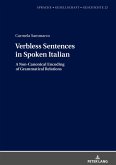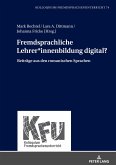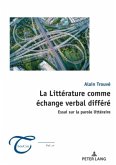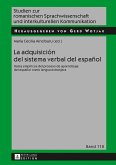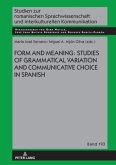This book provides a detailed analysis of how the Spanish verbal paradigms - preterite, imperfect, subjunctive, etc. - contribute to the meaning of sentences. The study integrates several years of practical language teaching with theoretical results from linguistics and the philosophy of language. The exposition is lucid and scholarly, although a formal treatment is generally avoided. Elusive distinctions are teased out, such as the contrast between dispositional and habitual sentences or between the notional and relational senses of a psychological verb, but always with a light touch. Semantics of Spanish Verbal Categories will be of interest to students of Spanish and to linguists in general.
"Mackenzie's book is an interesting and worthwhile addition to studies on the semantics of the Spanish verb, in many cases throwing a new and thought-provoking light on familiar verbal distinctions. [...] anyone interested in the relationship between form and meaning in the verb should find tackling the book a rewarding experience." (Ray Harris-Northall, Romanische Forschungen)


